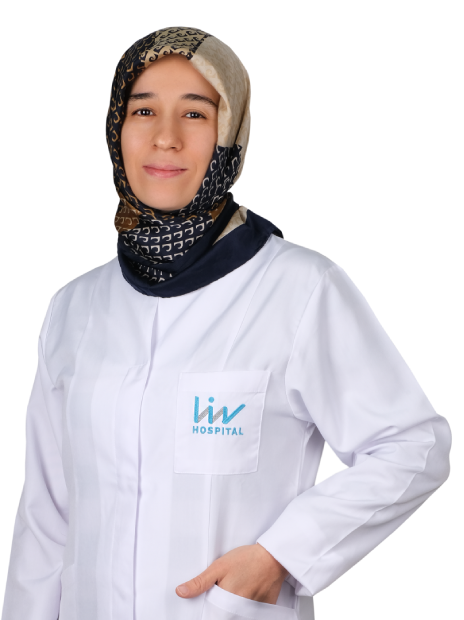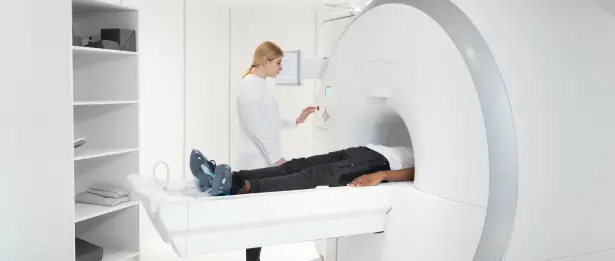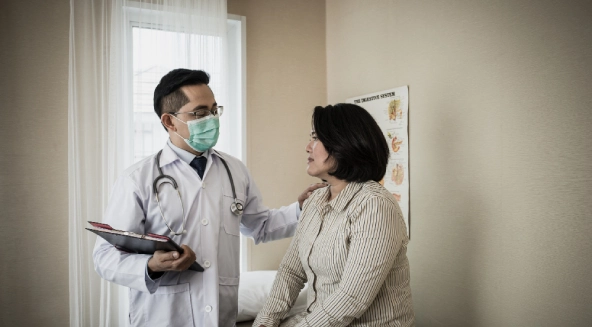Check-Up
.webp)
Last Update Date: 4/4/2025 4:56:36 PM
One's most precious asset is one's health. In order to have a healthy life and protect this asset, it is necessary to have check-ups at regular intervals. A check-up is a comprehensive medical examination to assess your general health and check for any signs of illness or health problems.
What is a Check-Up?
A check-up is a health check-up that includes routine medical examinations, tests and examinations to assess a person's general health status. Check-ups are usually performed without any symptoms or ailments, to assess a person's general health status and to detect potential health problems at an early stage.
This examination can be performed by a doctor and usually includes medical tests such as blood tests, radiological imaging (e.g. X-ray or MRI), electrocardiogram (ECG). Check-ups are usually performed at regular intervals to maintain individuals' health and provide preventive care.
Check-ups are an important tool for patients to learn about their general health status, identify risk factors and develop healthy living habits.
Why Should You Have a Check-Up?
- If a long and healthy life is among your goals
- If you want to know what needs to be done for this
- If you want to see that you are as healthy as you feel
- If you cannot spare time for health in your busy life rhythm
- If common diseases in your family worry you
- If you want to catch diseases early and be treated easily, you should contact our Check-Up and Healthy Life Department.
What Does Check-Up Control?
A check-up does not focus on a specific disease, but includes an assessment of the general state of health.
Blood Pressure: Hypertension (high blood pressure) is checked.
Cholesterol Levels: Cholesterol levels can be checked to assess the risk of cardiovascular disease.
Blood Sugar Levels: Blood sugar levels can be checked for diabetes risk.
Blood Count: Hemoglobin and other blood cells are examined.
Liver Function Tests: Liver health is evaluated.
Kidney Function Tests: Kidney health is checked.
Electrocardiogram (ECG): Heart rhythm and activity are evaluated.
Imaging Tests: Tests such as X-rays, ultrasound, MRI or CT scans can be used to assess the condition of internal organs.
When Should You Have It Done?
If you do not have any complaints in general, the check-up interval we recommend according to your age is as follows:
In your 20s, you can have your cholesterol, blood sugar and blood pressure measured once.
If the values are normal, at 5-year intervals until the age of 30,
Every 3 years in the 30-40 age range,
Every year after the age of 40,
As the risk of getting ill increases with age, the importance of check-ups also increases.
What are the Procedures to be Performed During Check-Up?
Although it varies according to the program to be determined and the tests to be performed, the following procedures are basically performed during the check-up: A detailed physical examination and final consultation by the physician, guiding the tests to be performed, making the necessary consultation decisions and evaluating the results and making recommendations
Blood tests determine a person's metabolic, hormonal and hematological status and how organs function.
X-ray and ultrasonographic examinations are the most important radiological examinations.
Procedures to image organs are supplemented, if necessary, by tests using advanced technology.
Function tests measure how the heart and respiratory system are working.
The aim of endoscopic imaging procedures is to directly access the gastrointestinal tract and take samples if necessary.
Before Coming to the Check-Up
- Please come without eating anything in the last 12 hours.
- Fasting lipid profile is important for accurate results of blood sugar levels and some other tests.
- Some medications, herbal treatments and antioxidants such as vitamin C have an effect on blood sugar and metabolic values.
- Do not take anything other than your regular vital medicines.
- Stop consuming alcohol and caffeine at least one day in advance.
- Watch your diet for the last three days; eat more vegetables.
- It is good to avoid foods of animal origin, especially meat.
- Do not exercise and do activities that will strain your body in the last day.
- For our female patient, any suspicion of pregnancy must be communicated to us.
- If an effort test is to be performed, it would be good to have suitable shoes and comfortable clothes with you.
You can contact our Call Center for any questions and problems.
















.png)




